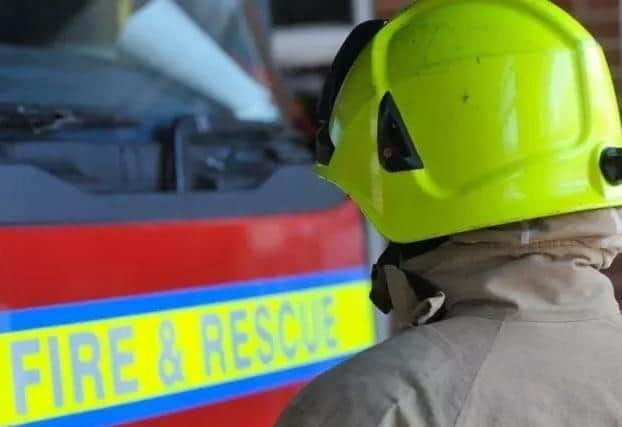Hampshire firefighters called to fewer fires - but plenty more road accidents
and live on Freeview channel 276
A report presented to Hampshire and Isle of Wight Fire and Rescue Service's authority board showed that the service received fewer fire calls in the first half of this financial year (April-September 2021) than it did for the same period last year.
By contrast to the 2,218 fire calls - 461 fewer than the same period last year - there were 4,605 special service calls, which include road traffic collisions, lift releases and ambulance assistance, up eight per cent from 2020.


Advertisement
Hide AdAdvertisement
Hide AdDeputy chief fire officer, Shantha Dickinson, explained to board members that although there have been fewer incidents year-on-year, the Covid-19 pandemic has played a significant part in somewhat skewing the figures.
'We are still in abnormal times at the moment,' she said.
'Incidents have increased when compared to the previous six months, but we've noted the fluctuation being mirrored by the relaxation of lockdown periods.
'We have seen a reduction in fires mainly influenced by a reduction in primary and secondary grass fires.'
Awaiting the outcomes of two coroner verdicts, between April-September this year nobody has died in Hampshire as a result of a fire.
Advertisement
Hide AdAdvertisement
Hide AdBut there have been 64 casualties, 60 per cent of whom were male.
Alongside the increase in incidents, demand for co-responding fire stations has also increased, with Portchester, Horndean and Romsey stations being highlighted.
But the fire service's response time to emergencies has also risen, the report added.
Average critical response time has increased by six seconds, compared to the previous six months.
Advertisement
Hide AdAdvertisement
Hide AdHowever, the deputy chief fire officer explained that the 'pingdemic' earlier this year - where millions of people were told by the NHS to self-isolate - hindered staff levels.
Ms Dickinson said: 'We've marked this up against lower general availability and higher levels of absence.
'We have a constant watching brief of absences - at the moment we have 13 Covid-related absences, either people with is or self-isolating.
'There have been some resilience measures put in place, such as staff working from home, to protect the workforce, and we have a degredation plan for critical front line service.'
A message from the Editor, Mark Waldron
Subscribe here for unlimited access to all our coverage, including Pompey, for just 26p a day.
Comment Guidelines
National World encourages reader discussion on our stories. User feedback, insights and back-and-forth exchanges add a rich layer of context to reporting. Please review our Community Guidelines before commenting.

